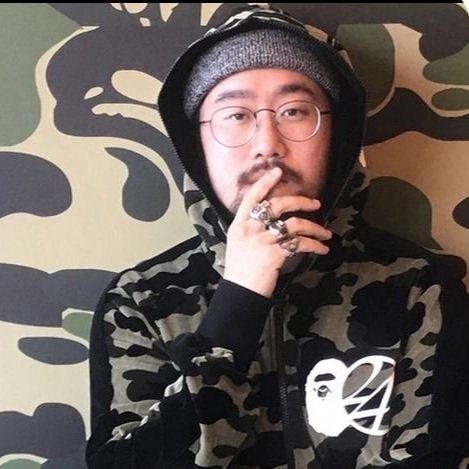
Our Blog

LACAAEA Turns 50!
Next year in 2022 marks the 50th anniversary of LACAAEA. As we reflect on our half century anniversary, it is clear that LACAAEA has built upon its historic beginnings to meet the needs of the LA County AAPI community it was intended to serve. It will be an exciting year full of events that celebrates our progress and honors our past. Our story will continue next year with packed full of events, such as our county leadership conferences and networking opportunities both in and outside of the county. We will continue to work with leaders of the AAPI non-profit organization and the County to educate, resource, and advocate for the AAPI community and the County employees. Thank you for your continued support of LACAAEA!
Please be on the look out for exciting events and programs by subscribing to our email notifications, connecting with us on Facebook or LinkedIn to receive events announcements, and checking out our YouTube channel.

Much to Be Thankful For
This past October’s Filipino-American History month reminded me of my own experiences as an immigrant in the US, and the many reasons why I have so much to be thankful for. My family and I flew from Manila to LA during one hot summer to start a new life. That summer was also one of the saddest times in my life because I left some of my closest friends and family behind. However, despite the sorrow and obstacles I faced moving to a foreign country, our move was also an opportunity of a lifetime. I am now thankful for living in a country that has such a diverse community, lots of great attractions, opportunities to earn a living regardless of age and ethnicity, and advanced technological innovations. I am also thankful for the continued support from Asian communities and friends who help me overcome the challenges that come along as an Asian immigrant.

Turkey with a Side of Fried Rice: How Asians Celebrate Thanksgiving
Like others of Asian heritage, I spent May reflecting on how far I and other Asians have come, where we are now, and where we still need to be. I am proud to call LA County, home. For me and other Asian immigrants like me, there is no other home. As a refugee born after the Vietnam War, my family and I fled from communism by fishing boat to Hong Kong and ultimately, to LA County. We rode the rising tide of freedom out of Vietnam and followed our dreams to the U.S., where we settled in LA County in the 1980’s largely due to the diversity of the region and the Asian populations that lived here.

The Chinese Massacre of 1871
The Chinese Massacre of 1871 occurred on October 24, 1871, in LA where a mob of hundreds brutally attacked, bullied, robbed, and murdered Chinese residents in Old Chinatown. A total of 19 Chinese immigrants were killed throughout the course of the riot. At the time, the Chinese population of LA amounted to a mere 172 and as such, those killed in the racial massacre represented over 10% of the Chinese population. Individuals from the mob were prosecuted and several were convicted of manslaughter in these deaths. However, the convictions were later overturned on appeal due to technicalities.

Filipino-American History Month
The first Filipinos arrived in the U.S. in 1587 in Morro Bay, California. Filipino-Americans have since grown into a population of over 4 million and have made significant contributions to society, science, and arts and culture. In 2009, Congress passed a resolution recognizing October as Filipino-American History Month. In this article, LACAAEA is extending its celebration by highlighting some notable Filipino-Americans and their outstanding achievements.

Meet Jackie Guevarra
In a safe, socially-distanced Q&A fashion, we will introduce you to a County leader whose work and words of wisdom may inspire you in your career development in the County. In this issue, we introduce you to Jackie Guevarra, Executive Director, Quality and Productivity Commission

A Celebration of Community: LA County Library’s Asian Pacific Resource Center
LA County Library is one of the largest library systems in the country, with 86 branches spanning over 3,000 square miles and within that vast system, there live four gems. LA County Library is home to four cultural resource centers educating, archiving, and serving communities of color: the American Indian, Asian Pacific, Black, and Chicano resource centers.

Yoshitomo Nara - Lost and Found
I’ve always been drawn to the Japanese pop art genre because of the colorful expression of the artists’ wild imaginations. So when I found out that Yoshitomo Nara’s paintings are on exhibit at LACMA, I knew I had to go see them. It turned out to be a trip to the Lost and Found of Forgotten Childhood Dreams.

Model Minority
Rapper/Activist Jason Chu speaks hope and healing in a broken world, blending high energy performances with thoughtfully crafted lyricism.
Most recently, Jason's work has been presented on the National Mall in Washington DC (In America: Remember) and curated in the LA Dept. of Cultural Affairs virtual exhibition Reimagine Public Art: House and Home.
His music has been heard on Warrior (HBO Max), Snowpiercer (TNT), and Wu Assassins (Netflix). He has shared poetry at the Obama White House, been featured in the Chinese American Museum of LA, and presented at the Getty Center, Flushing Town Hall (with Joe Kye), and the Nate Holden Performing Arts Center (with Clairobscur Dance). Jason tours extensively, with hundreds of shows across the US and worldwide.
As an expert on AAPI identity and hip-hop culture, Jason has spoken and led workshops at UPenn, Dragon*Con, NYU, Yale, and beyond. He is a contributor to the St. James Encyclopedia of Hip Hop Culture.
Follow Jason at @jasonchumusic everywhere.

How to Report a Hate Crime?
Esther Lim is a proud 2nd generation Korean-American who created booklets on How to Report a Hate Crime in 10 different languages for the LA and Orange County, New York City, Greater Bay, Saint Louis, Illinois, and Maine regions. She has printed and distributed over 93,000 physical copies of the booklets and is continuing to expand to more regions and languages.Her sole purpose of creating books on how to report a hate crime was to provide equity and break the concept of having a language barrier just to gain knowledge of resources that were already out there.
She believes there are different aspects in everyone’s lives where we see inequity and even in a small way, we can do something about it.
To find out how you can order copies or help make a financial contribution to distribute more books, go to https://www.hatecrimebook.com.


